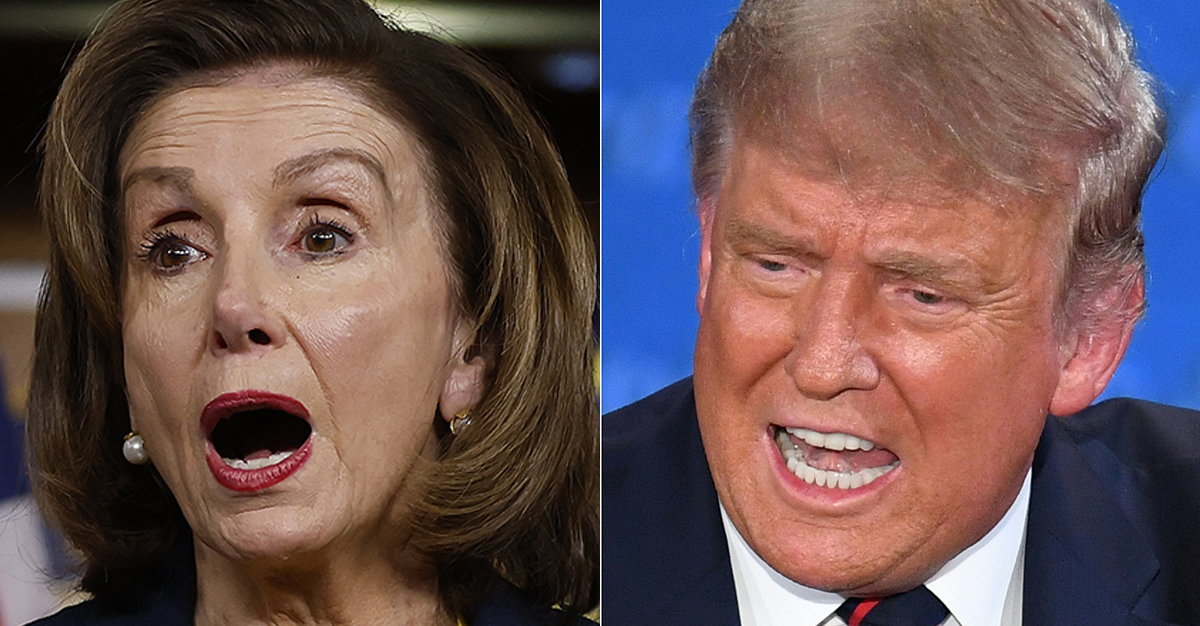OPINION: This article may contain commentary which reflects the author's opinion.
The Supreme Court is “on the clock” as part of the January 6 Capitol incident case has gotten to the Justices.
The House Select Committee on January 6 has asked the Supreme Court to let a lower court’s decision to allow the National Archives to turn over records from former President Donald Trump to stand, USA Today reported.
The former president has asked the court to block the sharing of records from that day, citing executive privilege.
“Although the facts are unprecedented, this case is not a difficult one,” the committee’s attorneys said in a filing with the Supreme Court on Thursday. “This Court’s review is unwarranted, and the petition for a writ of certiorari should be denied.”
The nine-member congressional committee is investigating not just Trump’s conduct on Jan. 6 — when he told a rally crowd to “fight like hell” shortly before rioters overran law enforcement officers — but also his efforts in the months before to challenge election results or obstruct a peaceful transfer of power.
The contested documents include handwritten notes about what was happening that day and call logs for Trump and Vice President Mike Pence, whose life was threatened as he oversaw Electoral College vote counting in his capacity as Senate president…
In suing to block the National Archives from turning over documents, Trump’s lawyers have said the committee has “no legitimate legislative purpose” for seeking them and granting access to the records would damage executive privilege for future presidents.
If the Supreme Court denies former President Trump’s appeal, then the lower court decision to allow for the archives to give the records would stand.
But attorneys for Trump told the Supreme Court on Wednesday that a recent interview with the chair of the committee in The Washington Post showed that the committee wants to establish a criminal complaint against Trump, which is beyond its scope.
The brief with the court was in reference to a December 23 interview with Mississippi Rep. Bennie G. Thompson where he said that the committee is looking intently into the former president’s actions on January 6 as it decides whether to recommend The Justice Department start a criminal investigation into Trump.
“The Washington Post has confirmed what was already apparent — the Committee is indeed seeking any excuse to refer a political rival for criminal charges, and they are using this investigation to do so,” Jesse R. Binnall, an attorney for the former president, said.
He said that the committee is acting as “an inquisitorial tribunal seeking evidence of criminal activity,” which is “outside of any of Congress’s legislative powers.”
In the interview the committee’s chair said that the former president’s delayed response in asking those who were protesting at the Capitol to leave could be a factor in whether or not there is a criminal referral.
“That dereliction of duty causes us real concern,” he said. “And one of those concerns is that whether or not it was intentional, and whether or not that lack of attention for that longer period of time, would warrant a referral.”
In the story, former federal prosecutor Randall D. Eliason said that the committee’s focus on a criminal referral could harden the stance of those who have declined to abide by subpoenas, arguing that their inquiry does not have a legislative purpose.
Trump sued to block the records from being given to the committee from the National Archives, but an appeals court denied him.
“The President of the United States and Congress have each made the judgment that access to this subset of presidential communication records is necessary to address a matter of great constitutional moment for the Republic,” the court said.
